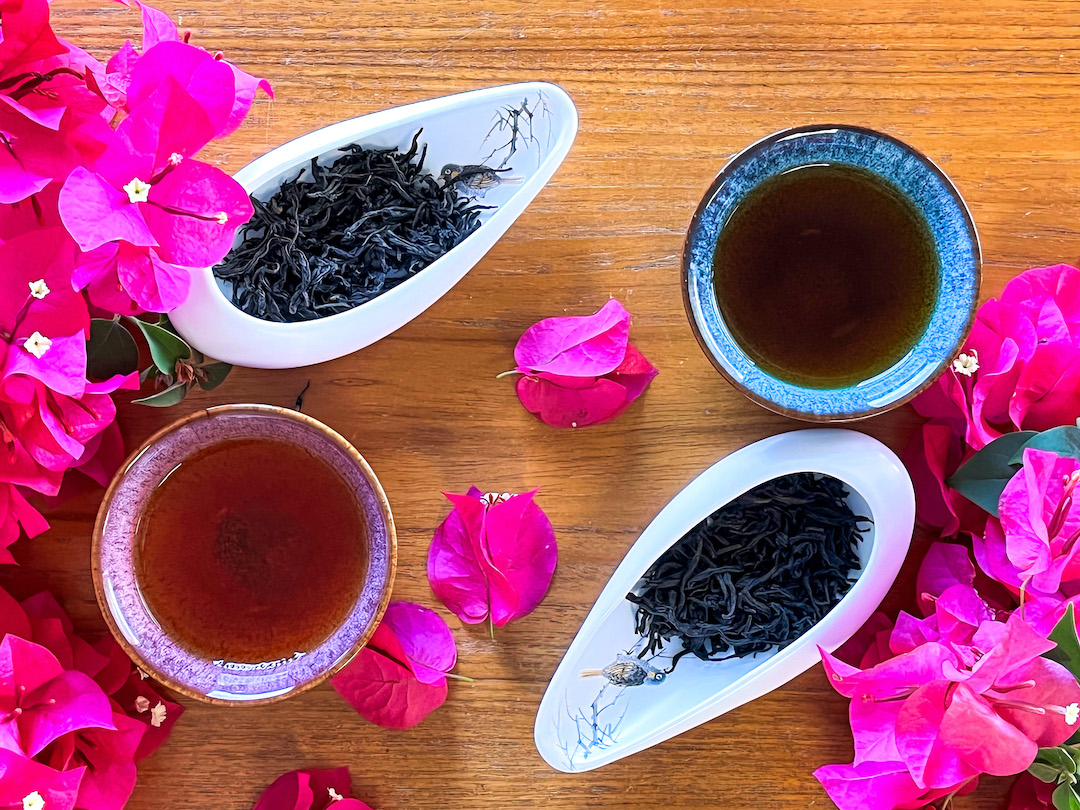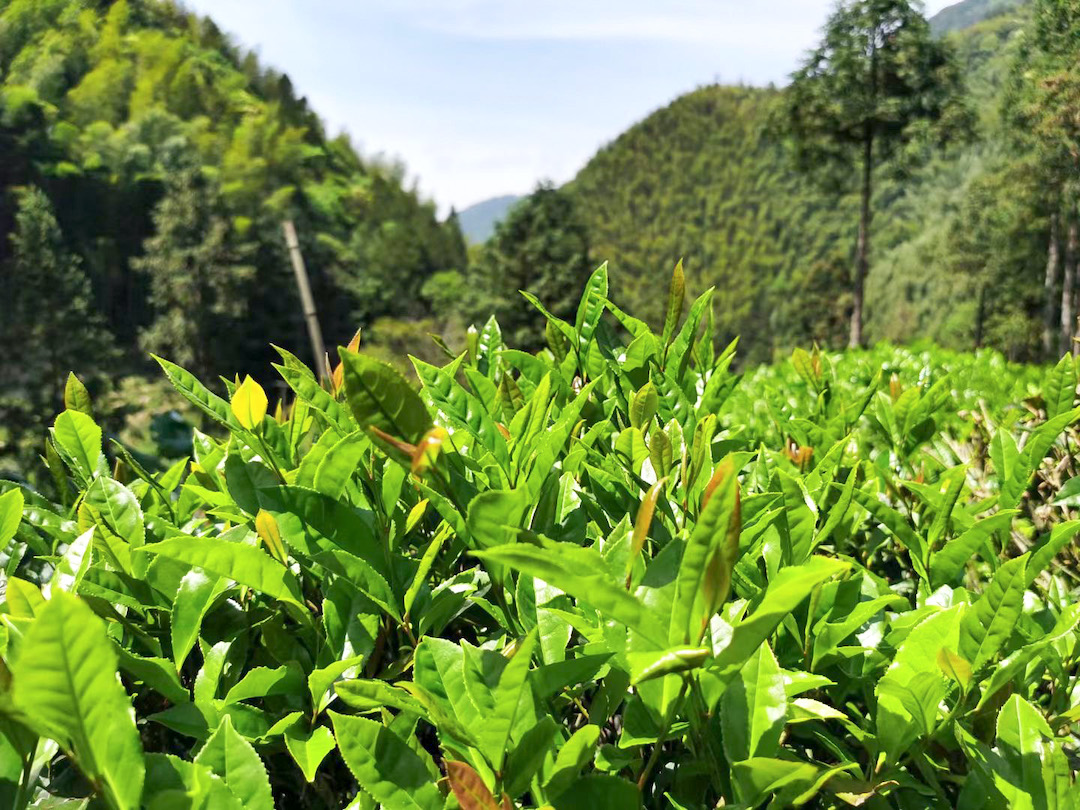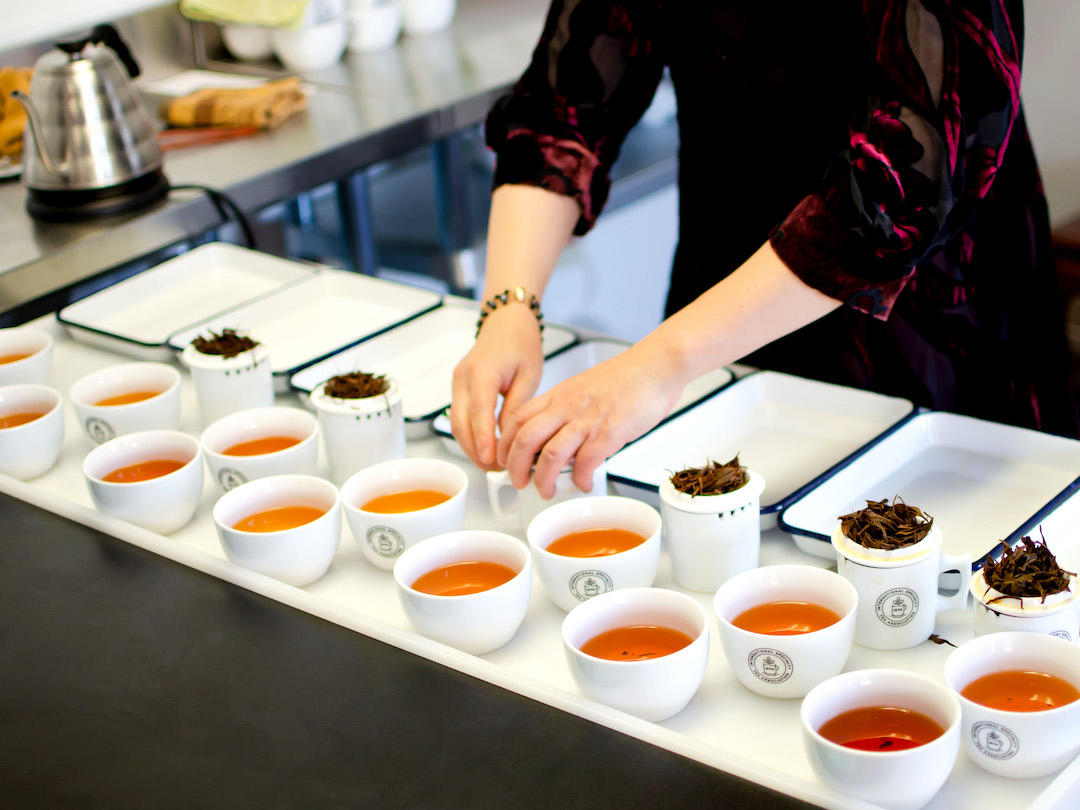Newsletter Archive Jun. 10, 2022

Zhuping continues to bring in ripe summer peaches from her backyard tree for us here in Tucson, and just in time for the local peach season, 2022’s harvests of Tongmu Zui Chun Fang (Drunken Peach) and Tongmu Lapsang Souchong are here as well. As usual, these two teas come to you from the emerging star of Tongmu tea making, Wu Jianming.
We think they’re pretty good.
You might ask us, what makes them so “good?” We could wax on about the floral stone fruit aromas from Drunken Peach’s hybrid processing or the incense quality of Tongmu Lapsang Souchong’s delicate treatment with Masson Pine smoke. If you taste these teas and like them, then they are indeed good.
But what if you’re interested in a more concrete understanding of “good?” What if you’re considering hundreds of teas and need not only to mark them as good teas or not, but also to rank their quality in a way that’s consistent and fair?
That’s a task taken up every year at the Tongmu Black Tea Competition, when the most respected black tea makers from the world’s oldest black tea origin assemble as an expert panel to taste and rank the best black teas their origin has produced that year.

Wu Jianming is among the youngest members of Tongmu’s expert tasters. He’s earned his spot at the tasting table alongside the elder generation of greats like Liang Junde and Jiang Yanxun. Last we saw Jianming in person, he’d just come down to Wuyishan after judging in this competition. So we asked him, “How do you do it? How can you evaluate that much tea consistently?”
Perhaps he tapped into his younger days in the marine corps for his answer, because he proceeded to cut through the bull with the most simple and direct means of evaluation we’d ever heard. Here is Mr. Wu’s approach:
- Brew three grams of tea and 150 ml of boiling water three times: for two minutes, three minutes, and then five minutes. That’s it.
Taste the first brew. Is it true to type? If so, the tea maker at least knows how to make the basic character of black tea. Is it flavorful and fragrant? If so, the tea’s storage was good. It hasn’t been muted or tainted.
Now taste the second brew. Is it still flavorful and fragrant? If so, the tea maker’s processing was good, the aroma will stick to the brew, and those first flavors weren’t a fluke.
Now taste the third brew. Is it sweet? Is there still aroma? If so, the fresh leaf used to make the tea was good, it was well plucked from healthy tea bushes that are dense with nutrients and aroma compounds. Leaves from deficient plants or from late in the season will lack persistence and tend to taste hollow and more bitter than sweet.
In brief, according to Jianming and the expert panel of Tongmu tea makers: good tea is tea with flavors that are true to type, prominent, clean, and persistent.
There’s a lot to be understood in each of those attributes, but if you’re looking for a succinct expression of what quality means to a body of tea makers who’ve done this for generations, this is it.

Black Tea Tasting Event in July
Want to taste more black teas side by side, or see how Drunken Peach compares alongside other excellent selections? Join Zhuping on Saturday, July 16th at the Tucson teahouse for a selection of Chinese black teas from our catalog as well as a few off-menu black teas.
More info and tickets are available here on Eventbrite. Seats are limited, so reserve yours soon.
